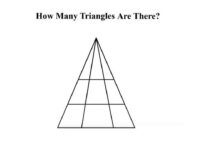The ten commandments of logic, also known as the ten commandments of rational debate, mainly belong to ancient philosophers but their meaning and implications are still valid even today. Regardless, everyone should read them and respect them in any argument if they want to become a better person and build a better, more valuable society.
1. Thou shall not attack a person’s character but the argument itself. (Ad hominem)
- Genuine discussion of the topic at hand is avoided by instead attacking the character, motive, or another attribute of the person making the argument, or persons associated with the argument, rather than attacking the substance of the argument itself
2. Thou shall not misrepresent or exaggerate a person’s argument in order to make it easier to attack. (Straw Man Fallacy)
- Giving the impression of refuting an opponent’s argument, while actually refuting an argument that was not presented by that opponent
3. Thou shall not use small numbers to represent the whole. (Hasty Generalization)
- A conclusion made about all or many instances of a phenomenon, that has been reached on the basis of one or a few instances of that phenomenon
4. Thou shall not argue thy position by assuming one of its premises is true. (Begging the Question)
- An argument’s premises assume the truth of the conclusion, instead of supporting it
5. Thou shall not claim that because something occurred before something else, it must be the cause. (Post Hoc/False Claim)
- A conclusion based solely on the order of events, rather than taking into account other factors potentially responsible for the result that might rule out the connection
6. Thou shall not reduce the argument down to two possibilities. (False Dichotomy)
- A deliberate attempt to eliminate several options that may occupy the middle ground on an issue. A statement that falsely claims an “either/or” situation, when in fact there is at least one additional logically valid option
7. Thou shall not argue that because of our ignorance, a claim must be true or false. (Ad Ignorantiam)
- It asserts that a proposition is true because it has not yet been proven false or a proposition is false because it has not yet been proven true
8. Thou shall not lay the burden of proof onto him who is questioning the claim. (Burden of Proof Reversal)
- A statute that shifts the burden of proof onto the individual specified to disprove an element of the information
9. Thou shall not assume “this” follows “that” when it has no logical connection. (Non Sequitur)
- A conclusion or reply that doesn’t follow logically from the previous statement
10. Thou shall not claim that because a premise is popular, therefore, it must be true. (Bandwagon Fallacy/Argumentum ad populum)
- A proposition must be true because many or most people believe it


















